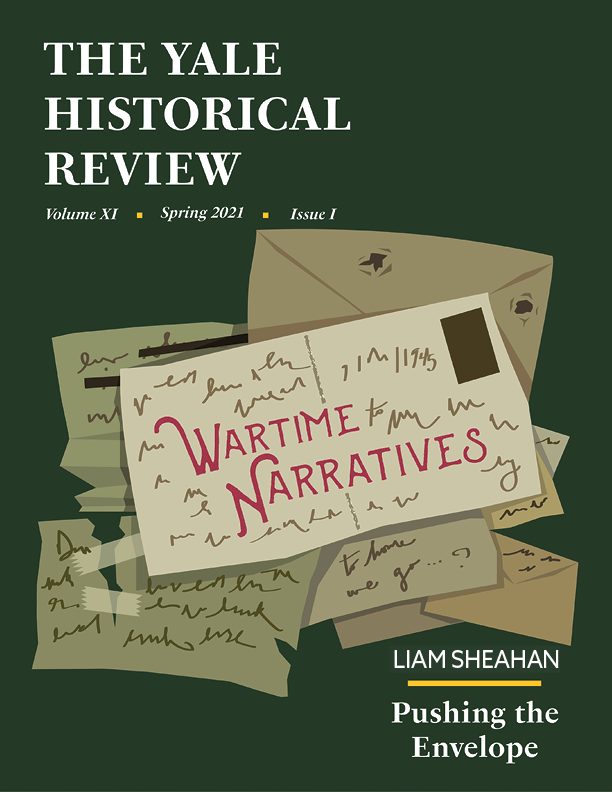Dear reader,
Welcome to the Spring 2021 Issue of the Yale Historical Review. With this issue, we return to campus and to print publication, having bid farewell to previous editors and welcomed many new ones to our ranks.
As managing editors, we inherited an organization with many strengths, but by far our greatest asset was our robust, dedicated, and talented team of editors. After one of the strangest years in its decade of existence, this issue marks our third term of editing an issue remotely. With more editors and readers than ever before, we moved our editorial process online, Zooming with authors and each other over the long months of the spring and summer to bring these papers to you.
The product of those long pandemic months is an issue that features five extraordinary works of undergraduate research, each with a strong reliance on and innovative use of primary source media among other strengths. Liam Sheahan analyzes a collection of letters written by one American soldier in World War II to explicate how the large scale events of the war were affecting his individual psychology. Helen Zhang weaves together testimonies of Korean and Chinese “comfort women” during and after the Japanese occupation, giving a voice to traumatic experiences and delicately challenging the politics of memory and translation in the process. Alyssa Durnil investigates Irish support for Palestinian self-determination, tracing a movement that began with radical political factions but left a lasting impact on the government of Ireland. Libby Hoffenberg zooms in on the early life of X-ray technology and examines its rise during a medical and industrial turning point in American history. Sophie Combs delves into the history of the Franco-American Orphanage in Lowell, Massachusetts, demonstrating how a state institution became a battleground for modern ideas of immigration, welfare, and community activism.
We plan to build on the foundations we’ve laid in an unprecedented year of publishing. Expect an increase in original online content, continued conversations with the Yale community, and more ways to engage with us both online and in person.
We’re proud to present to you five examples of excellence in undergraduate historical research. We’re even more excited for you to see more excellence from us in 2022.
Sincerely,
Grace Blaxill, Editor in Chief
Jisoo Choi, Editor in Chief

